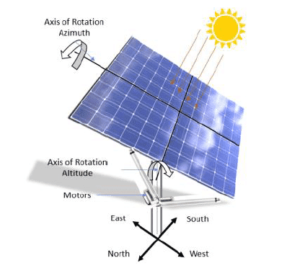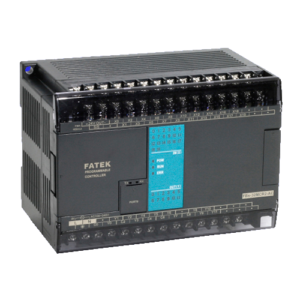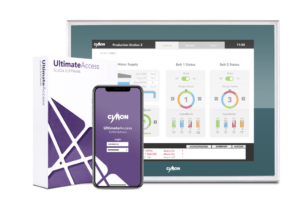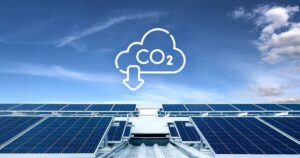Solar power is a clean and abundant source of energy, but its efficiency depends largely on how we capture sunlight. Throughout the day, the sun moves across the sky, which means that solar panels can only reach their maximum efficiency in a short period of time. To overcome this challenge, solar tracking systems have become a key solution. In this article, we will explain the importance of these systems and how they work.
![]()
Solar position control
To maximize solar energy collection, it is essential to keep the solar panels aligned with the sun’s current position in the sky. This is accomplished by tracking the sun’s azimuth and elevation angle. With data on the sun’s degree of azimuth at different seasons and times entered into the controller, we can automatically adjust the orientation of the panels to follow the
sun’s moving path. This ensures optimal power generation efficiency throughout the day.

Actuators and controllers
Actuators, such as hydraulic pistons or motors, are used to make these corrections to the angles of the solar panels. The choice of actuator type depends on the weight of the panels and the axis of rotation. In many cases, motors are the preferred choice because of their ability to control the orientation precisely.
Control system
Fatek programmable logic controllers (PLCs) are an efficient solution for actuator control. For example, the FBs family NC positioning units with high-speed inputs and outputs become ideal for servo motor work.

It is important to consider the number of inputs and outputs needed to control solar tracking. This includes the use of encoders for motor positioning, sensors for sun tracking and the incorporation of manual control in automatic systems. The FBs family of Fatek PLCs is an excellent choice, as it allows the expansion of I/O modules up to 255 inputs and outputs, making it easy to control multiple panels with a single system. In addition we can monitor everything from SCADA systems such as SCADA FvRT or Ultimate Access from Cimon.

Environmental considerations
In addition to energy efficiency, solar tracking systems also have a positive impact on the environment. By maximizing solar energy capture, they help reduce carbon emissions and the ecological footprint. This contribution to sustainable development is a key aspect of the adoption of solar technologies.

Conclusion
In conclusion, solar tracking systems play a crucial role in maximizing solar energy efficiency. Furthermore, these systems not only improve energy efficiency, but also contribute positively to the environment by reducing carbon emissions. With the constant evolution of technology, solar tracking systems will continue to be a vital part of the transition to more sustainable energy sources.
sales@logicbus.com | support@logicbus.com | +1 619 616 7350 | Start conversation




